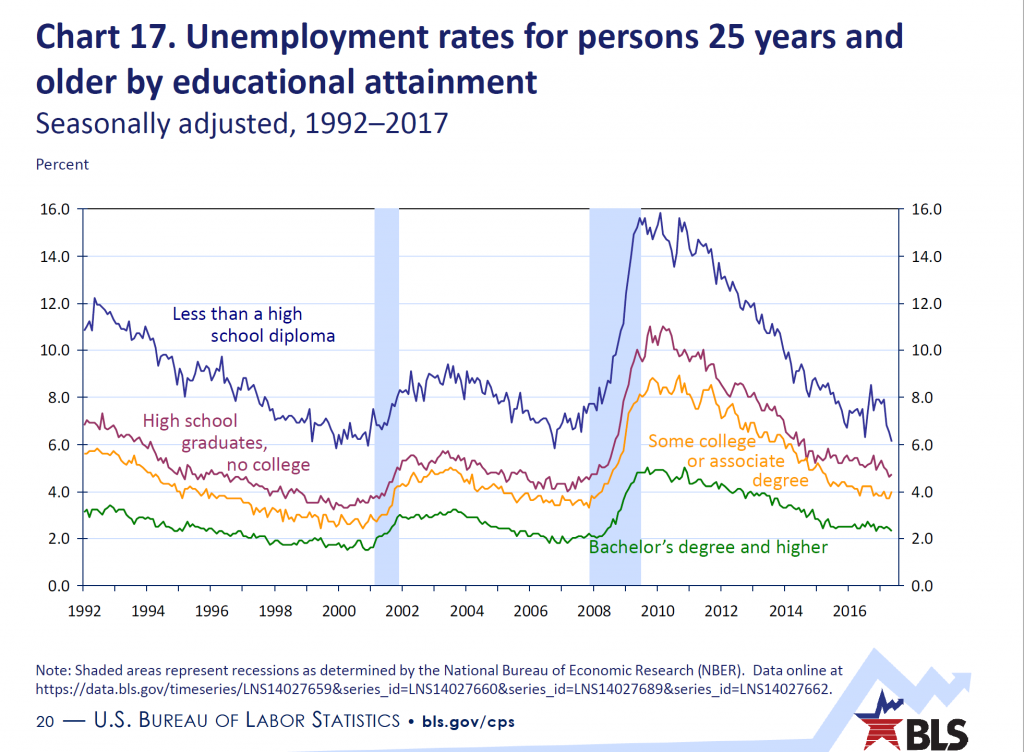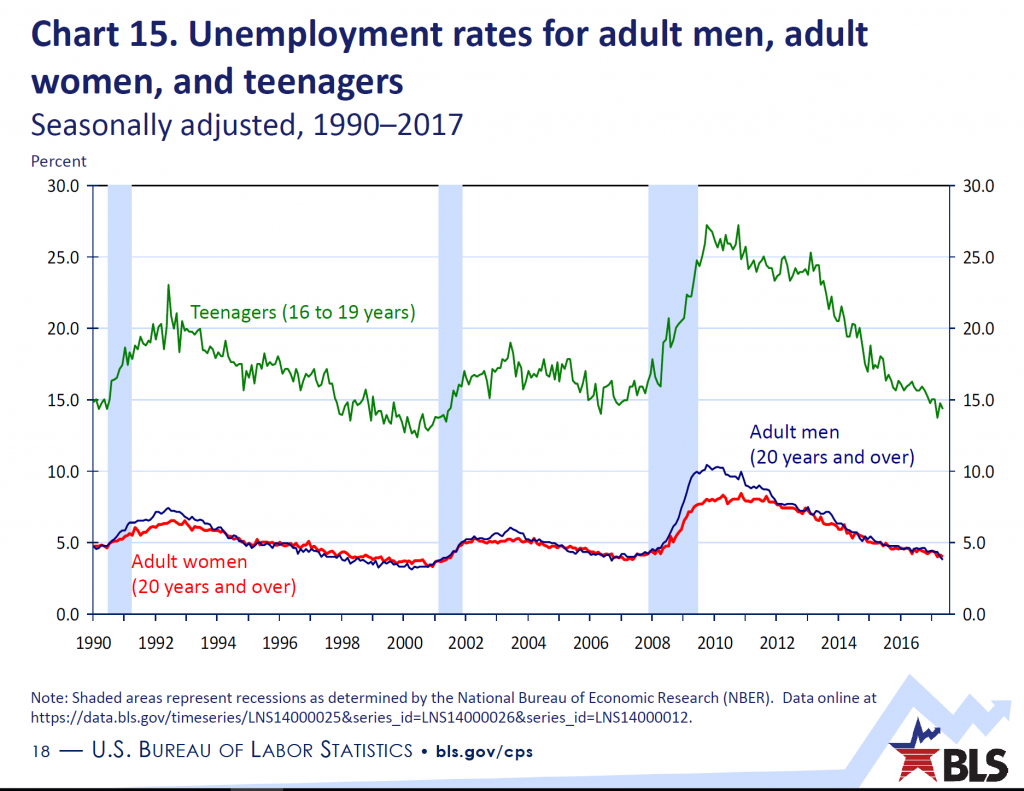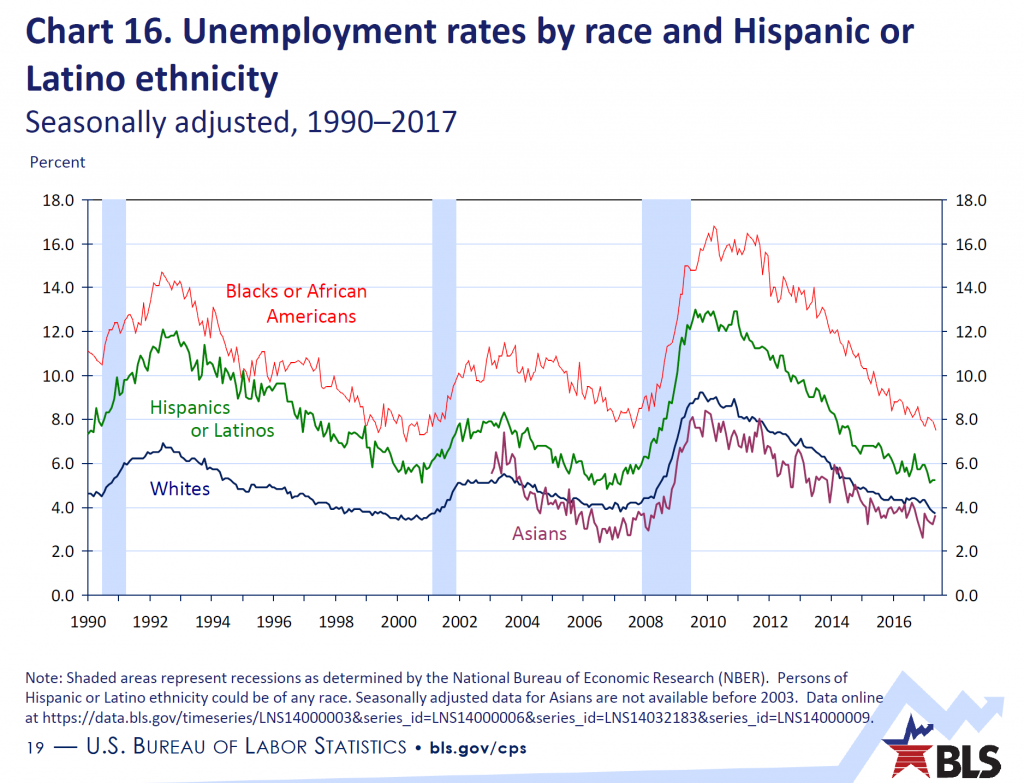Unemployment, Education, and Wealth Generation
A few weeks ago, I mentioned that I fell down the financial independence retire early (FIRE) rabbit hole. One writer who I failed to mention is Financial Samurai. He recently wrote Your Chances Of Becoming A Millionaire By Race, Age, And Education. Great stuff. Pretty data.
Let me sum up – education matters in the USA but it varies by race with White > Asian > Hispanic > Black. He’s got some fantastic charts and graphs that showcase the striking gaps. And with age, the likelihood of an Asian become a millionaire exceeds that of everyone else.
This aligns with recently released data from the US Bureau of Labor Statistics on employment rates by education, race and gender. PDF link: Charting the labor market: Data from the Current Population Survey (CPS). Everything I read in the news makes is sound like unemployment is at historic lows with a slight recent uptick with the hurricanes, but the employment participation rate has never really recovered (~63% vs. ~67% before 2008). And, some demographic groups (youth, minorities, not college educated) have found it harder to reenter or join the workforce. I have seen very little press on these disparities since the overall numbers look good.
Let me start with education – a clear passion of mine. Those of us with at least a college degree were much less hard hit by the last economic down turn than those with less educational attainment. Times are changing, and the internet makes education essentially free, but at least today, an actual degree seems to still create more employment potential than not having one.

older by educational attainment
There is extensive talk about glass ceilings for women, but if this graph is correct, women have experienced less unemployment than men after most major downturns. And young people are just screwed if they’d like to skip college and just start working. Of course this graph is not complete as it does not address wages, but it’s still striking.

women, and teenagers
The racial information aligns with that shared by Financial Samurai. Perhaps the most interesting component of this chart is that Asian unemployment in the US is approaching zero. Outside of the controversy around reverse discrimination against Asians at Ivy League Schools, this gets almost no press.

Latino ethnicity
I don’t have any easy solutions for the gaps and disparities. But you can’t change what you don’t track. The first step is acknowledging what is and noting the gaps that need to be closed, if any. It’s not a simple as just making sure everyone goes to college, although that can’t hurt.
Great article. Thanks for posting. At the risk of touching the 3rd rail, much of the data in your post correlates with IQ research by race. Disclaimer. That in no way implies value of a person or group to society. IQ is not a measure of wisdom for example which is in very short supply and impossible to monetize.
When / if you factor in IQ along with the big 5 personality trait of consciousness, higher education has little impact on success.
Your thoughts?
Thanks Joe. Your question is a tough one. It certainly would be interesting to see how that parameter impacted the results. But, the data the Financial Samurai had, which was interesting to me, compared people of different races, in the US, with equivalent educational achievement – so a correlate for equivalent IQ or learning potential, access to education, etc. Why didn’t that lead to equal achievement in terms of salary potential or wealth accumulation? Back when I was doing my MBA, I remember seeing (but I could not find it with a quick google search) that salary and likelihood of startup success actually went down if one had a PhD vs. a Masters degree. Masters degree was the peak! So, you’d think that on average PhD’s might have higher IQs, but it didn’t actually lead to more wealth or career success, depending how you measure that. Ever and always, I try to remember that correlation is not causation; it’s never that simple and there are always other factors that might be very important that just haven’t been looked at yet. Mostly I don’t know what to make of all of the economic data – so I thought I’d put it out there to start the conversation. Thanks for joining.